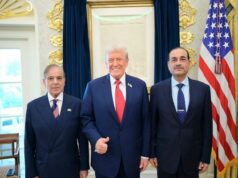NEW DELHI: The India-US Initiative on Critical and Emerging Technologies (iCET) is emerging as a key pivot around which the India-US relationship will be defined in the coming year. In a session moderated by Nitin Gokhale at the recently held Global Technology Summit hosted in conjunction with Carnegie India and the Ministry of External Affairs in New Delhi, panellists which included India’s former ambassador to the US, Arun Singh, Special Assistant to the US President and Senior Director for Technology and National Security, Tarun Chhabra, MD & CEO of Invest India, Nivruti Rai, and General Atomics Global Corporation CEO, Vivek Lall, weighed in on how far the India-US relationship had moved forward in the last few years. Terming iCET as “transformative” Ambassador Singh stated that the initiative was as influential as the 2008 civil nuclear deal signed between the two countries as it had allowed significant breakthroughs to be made in the defence and space sector. Before the nuclear deal, India had hardly bought any defence supplies from the US but today defence contracts worth $23 billion had been signed between New Delhi and Washington. Defence technology partnerships were on the rise and heavy investments in the semiconductor industry on both sides would boost cooperation. Chhabra agreed and added the fact that the strategic technology partnership was the keystone of the India-US relationship had helped to open doors in areas and sectors that were previously closed. Pointing to the co-production deal of GE engines or cooperation in space (Isro and Nasa are expected to conduct their first joint mission in space in the quarter of next year) the foundation for cooperation in the strategic technology sector had been laid down. The results of this cooperation would not just benefit India and the US but friendly third countries the details of which would be announced in the coming months, he said.




